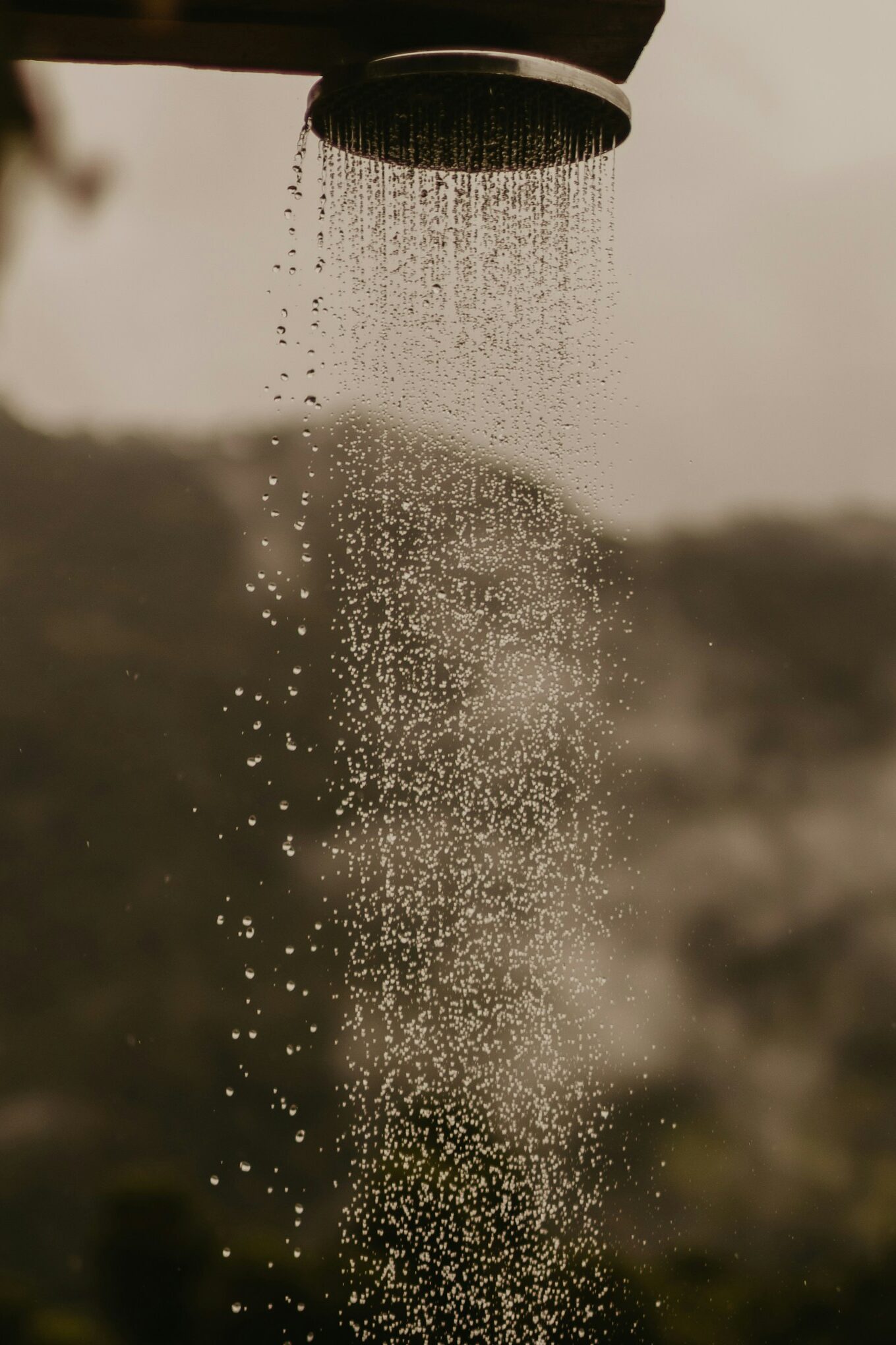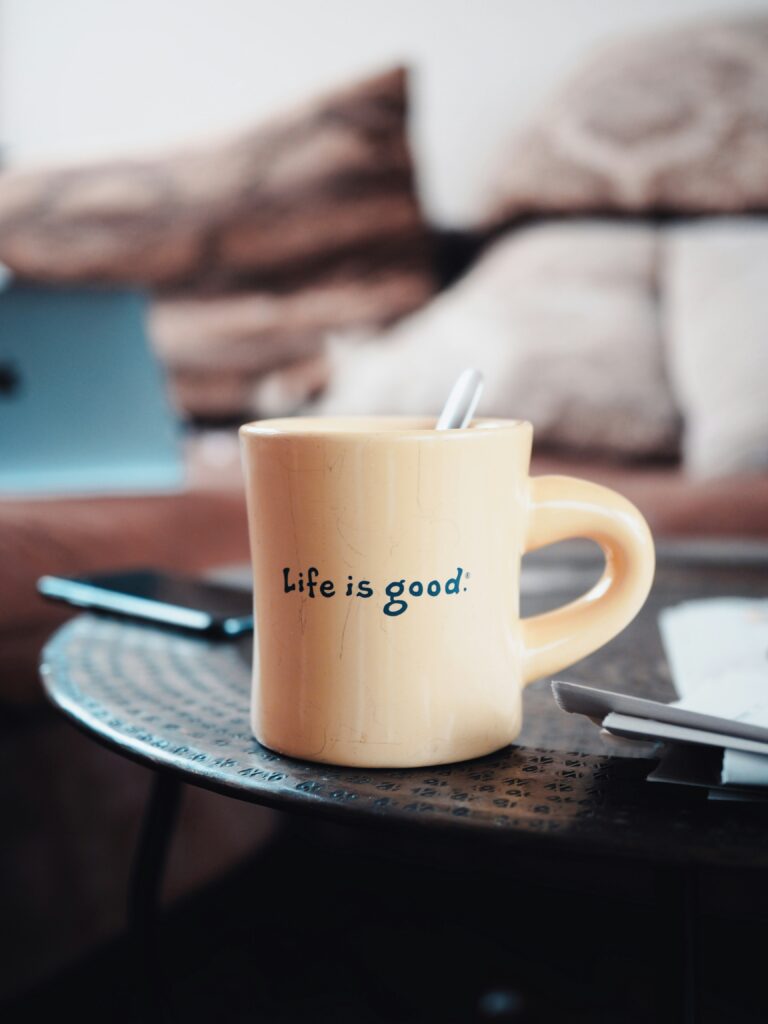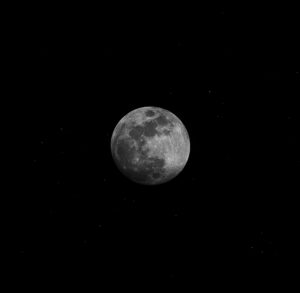4 min read

“Shower” Images – Unsplash.com
Introduction
Imagine this:
It’s a typical morning. You wake up with around 15 minutes to get ready. You spend the first 5 minutes contemplating life, thinking about it, regretting some decisions, possibly being grateful for some; just to realize that after all of that, you are still in bed, and are completely not ready-to-go.
So, you get out of bed. You get put on some clothes that you didn’t prepare the night before, thus spending a few extra minutes deciding what to wear. From there, you head over to the bathroom and brush your teeth.
Then, you’re out of the house. There are a lot of negatives in this situation that can be easily called out; however, the part that we’re specifically looking at is the way in which this visualized person leaves the house.
Continued
You leave the house feeling terribly and still tired. You can barely keep your eyes open, and are struggling to even stay awake on your way to school or work.
That’s the problem.
Far too many of us get poor sleep, don’t make up for it on the weekends, and refuse to acknowledge or do anything about it until it’s too late and until we’ve realized that the damage we’ve done is irreversible. That’s where you cross the line. You don’t wanna reach that point of “wow, I messed up”.
The Solution
You need to wake up, and wake up faster. Well, we’re not here to directly tackle that problem, but we are here indeed to propose a solution that may solve such a problem. That solution goes by the name of cold showers. Do all the research you want. All of them will lead to the final conclusion that cold showers will, and I mean will make you wake up faster, easier, and sooner.
And even if you’re not the type of person to believe in these “studies”, you can always trust common knowledge (in most cases). That common knowledge, common consensus, is that to wake yourself up, you need to either:
- do something that will physically wake you up and force your muscles to move
- do something that will mentally wake you up and force your mind to wake up (the most chosen and preferred option among many)
I guess you can imagine how helpful a simple cold shower can be. And no, they don’t have to be long either. And, no, they also cannot be warm; because those won’t force your muscles to move and will cause you to just be more tired. That’s not what we want.
Why Bother?
You want to wake up early. You know you want to. Sure, you may say “but, I want more sleep.” And you’re right, who doesn’t? But, remember, the point of these cold showers is specifically for the days in which you don’t get enough sleep, not the opposite. For instance, if it’s a weekend, and you decide to not set a timer and just let your mind and body awake whenever it wanted to, then you should wake up feeling refreshed. If that’s so, then a cold shower to get you moving is completely unnecessary, because you’re mind is already ready to go.
Of course, if you’re the type of person that can sneak by 10 hours of sleep, yet still feel like garbage after all that sleep, then it’s something more than the sleep that you’re getting. In that situation, you either a) need to really track your sleep efficiency and see how much sleep you’re actually getting per night or b) fix some part of your life that is seriously disturbing you, whether that’d be stress, diet, family, whatever. You get the point. There are a multitude of elements that have an influence on your sleep, and therefore, you must fix whatever that is.
You can read this post here to learn more about this problem.
What If I Get Good Sleep?
If you get good sleep, then taking a shower in the morning is definitely unnecessary. Remember, the point of this cold shower is to get you moving and get your mind and body to work. If you wake up feeling ready-to-go, and have gotten a good nights rest, you might want to reconsider this cold shower. If you’re someone who is on a tight schedule, you’re probably better off skipping this entirely.
Despite this fact, it shouldn’t stop you from reaching a reasonable conclusion. There a majority of benefits associated with cold showers, and so, if you ever feel like taking one because why not, then feel free to. It can only do good for you, and not the opposite (unless you’re going to sleep, then you don’t wanna take a cold shower; trust me).
Final Consensus
If you’re someone that wakes up, and usually doesn’t get enough sleep, then this strategy is for you. Although you will have to wake up 10 minutes earlier (or even more, depending on any routines you have going on) so that you can give yourself enough time to get ready and leave for whatever you gotta do.
If you need a little help, then here’s a simple list that you can use:
- If you’re someone that wakes up feeling energized, and ready to conquer the world, then you should -preferably- not depend on this method. You’re better off saving those extra few minutes on more sleep to get your mind and body more and proper replenishment.
- If you’re someone that wakes up feeling tired, and unprepared to do anything, then you should try this method. It’ll wake your body up, and actually get your mind to realize “oh wow, we’re actually awake”.
- If you’re someone that wakes up tired on some days, and energetic on other days, then you should use this method accordingly. For the days in which you wake up tired, or know that you won’t get enough sleep, take a cold shower; and for the days that you wake up energized, don’t bother.
- If you’re someone that almost always gets a dangerously low amount of sleep, no matter what day of the week it is, then you should not try this method. You’re better off practicing another shorter method that will have a similar (but not as great) of an effect as taking a shower. We’ll leave a suggestion for this persona later on.
Can’t I Just Wash My Face?
If you were to use cold water to shower, can’t you just splash your face with some cold faucet water and be ready to leave the house. Well, yes; but also no.
Washing your face works, but not on the same level as a cold shower does. The magic about cold showers is that they target every single muscle in your body, and force them into a state that gets your brain to want to start moving. Washing your face can’t, and doesn’t have the same effect.

“How To Wake Up Ready To Do Anything”
The Perfect Cold Shower
Imagine stepping into a shower where the water is brisk but not biting, a refreshing chill that sends a gentle jolt through your body. It’s cold enough to banish any remnants of sleepiness, awakening your senses and invigorating your skin. The water cascades over you, and with each deep breath, you feel more alert and alive. The shock of the cold is fleeting, quickly replaced by a surge of energy as your heart rate increases, pumping oxygen-rich blood through your veins. You finish feeling more awake than any cup of coffee could ever make you, ready to tackle the day with clarity and focus.
For Beginners
When you’re first starting out, you shouldn’t be accustomed to this feeling. And no, I’m not talking about the feeling of the water running down your skin, and freezing you, and you wish that you just were in bed, still sleeping and relaxing. No, I’m talking about the feeling are forcing your brain to do this even though it doesn’t want to – that feeling.
So, when you’re starting out, the best and common tip is to suck it up. Deal with it. It sucks, but that’s why it works. Force your brain to act like that, and you’ll keep that energy for the rest of the day. Yeah, I know, it’s quick – but not easy. Doing the opposite of what your brain wants is far easier than it looks.
And on the topic of whether or not your body will ever get accustomed to the cold water, probably not. Over time, it may get used to the cold water faster than if you were to have just started; but remember, cold water is cold water. The fact that you won’t appreciate it is inevitable – not saying that they don’t serve a vital purpose of course. After all, just take a look at your skin and hair after a shower. They feel awesome.
My Step-by-Step Procedure
For the beginners wanting to get into this, I can probably imagine you asking how you can get started. To be fair, it’s sort of easy; but not easy easy. You’re still taking a cold shower.
- Get In The Shower.
- Set The Water To Warm.
- Gradually decrease the temperature of the water. This is the most important step in the process. As the water gets colder, you want to feel the temperature the water to confirm whether or not if its cold enough. Depending on the temperature of water that you usually wash your hands with, the water should either feel cold, or feel slightly warm (both good temperatures).
- Aim for water below 60 degrees. Of course, you don’t literally want to freeze yourself. You just want to wake yourself up. Make it cold enough to do that.
- Still too cold? Get in, and deal with it. Teach your brain that you won’t listen to its instructions. You are your own boss; act like it.
What You Should Experience After A Cold Shower
After a cold shower, one typically experiences a burst of energy and alertness. The initial shock to the system can increase heart rate, stimulate deeper breathing, and result in a rush of blood through the body, all of which help to shake off sleepiness and lethargy. Many people report feeling invigorated and more awake immediately after the shower.
The cold water can also result in a temporary tightening of the skin and a reduction of inflammation, giving a refreshed and toned feeling. Endorphin levels may rise, leading to an improved mood and a sense of exhilaration. The contrasting sensation upon stepping out of the cold into a warmer environment can also heighten sensory perception.
Over time, regular cold showers may lead to increased tolerance to cold and improved circulation. Some people claim that it boosts their immune system, though scientific evidence on this is mixed. It’s also suggested that cold showers can help with muscle recovery after intense physical exercise by reducing soreness.

“Wolf” Images – Unsplash.com
Other Methods (for those with minimal time)
- Exercise: Engage in a morning workout routine. Physical activity gets your blood flowing, muscles moving, and heart pumping. This doesn’t have to be a full gym session – even a brisk walk, some light stretching, or a quick set of push-ups can do the trick. Exercise releases endorphins, which are chemicals in the brain that act as natural painkillers and mood elevators. They’re often referred to as ‘feel-good’ hormones and can provide a lasting energy boost that carries you through the day.
- Healthy Breakfast: Eat a balanced breakfast that includes protein, healthy fats, and complex carbohydrates. Foods like eggs, oatmeal, yogurt, and whole-grain toast can provide sustained energy without the crash that comes from sugary alternatives. The act of eating also signals to your body that it’s time to start the day, and the nutrients from the food fuel both your brain and body.
- Hydration: Drink a glass of water as soon as you wake up. Hydration is key after a night’s sleep since you go several hours without consuming any fluids. Drinking water kickstarts your metabolism, helps your body flush out toxins, and gives your brain fuel to start functioning properly. Cold or iced water can be especially effective because the cool temperature stimulates your alertness.
- Stimulating Music: Put on an upbeat playlist. Music can have a powerful effect on our emotions and energy levels. A lively tune with a fast beat can elevate your heart rate and get your adrenaline flowing. Plus, if you get up and move to the music, you’re adding some light physical activity to your morning, which, as mentioned earlier, can help you wake up.
- Natural Light: Expose yourself to natural sunlight as soon as possible. Your body’s internal clock, or circadian rhythm, is influenced by light. Sunlight signals to your body that it’s time to be awake and alert. Opening the curtains or stepping outside for a few minutes can help stop the production of the sleep hormone melatonin, making you feel more awake.
The Magical Science Behind A Cold Shower
When the cold water hits your skin, the immediate response of your body is to preserve heat. Your skin is full of receptors that can detect changes in temperature, and they send signals to your brain that say, “Hey, it’s cold out here!” In response, your brain sends out orders to the rest of the body to start the warming-up process.
One of the first things that happen is the blood vessels near your skin start to constrict or get smaller; this is called vasoconstriction. By narrowing the pathways for blood flow, your body is trying to keep the warm blood away from the skin surface where it would lose heat to the environment. It’s like your body is pulling all your warmth inwards to protect your core temperature; that’s the temperature of the vital organs inside your body, which needs to be kept stable for you to function properly.
This sudden tightening of blood vessels also causes your blood pressure to rise a bit because the same amount of blood is being pushed through narrower spaces. Your heart then starts to work a bit harder to pump blood through these smaller passages; which increases your heart rate and gets more oxygen to your brain. That’s why you often feel a burst of alertness.
Another part of this response is your breathing. You might notice you start to breathe more deeply or quickly when you step into a cold shower. This isn’t just because of the initial shock or surprise. The colder temperature makes your body want to take in more oxygen to help keep up your energy and warmth. So you breathe faster to get more oxygen into your system, which also helps to wake up your brain.
The cold also triggers your sympathetic nervous system, which is part of your body’s way of reacting to stress. This is where the ‘fight or flight’ response comes in. It releases adrenaline, a hormone that prepares your body to react to a threat. Adrenaline increases your alertness and can give you a feeling of energy or a natural ‘high,’ which is a big reason why you feel more awake after a cold shower.
Adaptation
Over time, if you take cold showers regularly, your body can get better at dealing with the cold. This is called cold adaptation. You might start to feel less shock and discomfort because your body becomes more efficient at managing its response to the cold.
Finally, a cold shower can influence the production of various hormones and neurotransmitters; which are the chemicals your brain uses to send signals. For example, cold showers are thought to increase the production of beta-endorphins and noradrenaline, which can help reduce pain and boost your mood.

“Good Mood” Images – Unsplash.com
Conclusion
Cold showers are the magical (and for many, the unfortunate) answer to waking up instantaneously and converting your mind and body from a state of exhaustion to energy. If there’s a method out there that you’re looking for to get yourself to wake up ASAP, it’s this strategy. It takes 10 minutes of your time. Just try it, and see how it feels (it’ll suck, but will it afterwards?).



